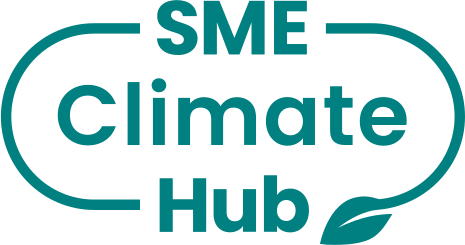See the steps your company can take towards a more sustainable future through our open resources.
Atlantis Health Group Ltd's Climate Report
Introduction *
Commitment and Targets *
Own Emissions *
Value Chain Emissions *
(optional)Climate Solutions *
(optional)Governance, Strategy and Climate Risk *
(optional)Results, Challenges and Outlook *
Introduction *
1.1 End day of the reporting period
*1.1.1 Reporting year
*1.2 Describe your business activities
*1.4 Number of employees on the end day of the reporting period
*1.4.1 Full-time equivalent (FTE) or headcounts
*1.5 Is this report being submitted on behalf of a parent company or a subsidiary? If so, please briefly explain the relationship.
*Commitment and Targets *
2.1 Net zero target year
*2.1.1 Base year
*2.1.2 Base year value
*2.2 Near-term target
*42% of absolute scope 1+2+3 emission reduction from my base year by 2030
2.4 To reduce emissions in line with my commitment, my company has a climate action plan and is taking action
*Own Emissions *
Energy consumption
3.2 Total energy consumption
*3.3 Total renewable energy consumption
*Scope 1 emissions
3.4 Scope 1 emissions
*Scope 2 emissions
3.5 Location-based scope 2 emissions
*3.7 Have you taken any actions to reduce scope 1+2 emissions in the reporting period?
*3.8 Which tools or methods did you use to calculate your scope 1+2 emissions?
*Other (please specify)
3.8.1 Specify any additional details
*Value Chain Emissions (optional) *
Scope 3 emissions
4.1 Have you measured any of your scope 3 emissions?
*Supply chain related - upstream emissions
Customer related - downstream emissions
4.2 Have you taken any actions to reduce scope 3 emissions in the reporting period?
*4.2.1 What actions have you taken to reduce scope 3 emissions in the reporting period?
*Climate strategy and planning,Business travel and commuting,Supply chain engagement,Product/service design innovation,Digital and technology-enabled solutions,Other company behavioural changes
4.3 Have you asked any of your suppliers to set a net zero target (either voluntarily or as a requirement)?
*4.4 Have you communicated your commitment and actions to any of your customers?
*4.5 Which tools or methods did you use to calculate your scope 3 emissions?
*Other calculator (please specify)
4.5.1 Specify additional details
*Climate Solutions (optional) *
5.1 Do any of your existing products and/or services qualify as climate solutions or enabling solutions?
*No
Governance, Strategy and Climate Risk (optional) *
6.1 What governance processes do you have in place for your climate strategy? Choose as many as are applicable.
*Governance process in place
6.1.3 Please describe the governance process in place
*6.2 Have you started to identify and assess your companies climate risks and opportunities?
*6.3 Have you integrated climate and/or nature into your company mission statement or shareholder agreements? If yes, describe how.
*No
6.4 Have you taken actions this year outside of your emissions to accelerate climate progress?
*No
Results, Challenges and Outlook *
7.1 Provide any additional comments or context on your annual results and progress from previous years.
*7.2 Do you face any key challenges in reducing emissions?
*Reducing scope 3 emissions,Limited control over energy use in buildings,Balancing emission reductions with business growth,Complexities in managing supply chain emissions
7.3 Has there been any third party validation of the data submitted in this report?
*No

Atlantis Health Group Ltd's Climate Report
Atlantis Health Group Ltd's Climate Report - 2024
Introduction *
1.1 End day of the reporting period
*1.1.1 Reporting year
*1.2 Describe your business activities
*1.4 Number of employees on the end day of the reporting period
*1.4.1 Full-time equivalent (FTE) or headcounts
*1.5 Is this report being submitted on behalf of a parent company or a subsidiary? If so, please briefly explain the relationship.
*Commitment and Targets *
2.1 Net zero target year
*2.1.1 Base year
*2.1.2 Base year value
*2.2 Near-term target
*42% of absolute scope 1+2+3 emission reduction from my base year by 2030
2.4 To reduce emissions in line with my commitment, my company has a climate action plan and is taking action
*Own Emissions *
Energy consumption
3.2 Total energy consumption
*3.3 Total renewable energy consumption
*Scope 1 emissions
3.4 Scope 1 emissions
*Scope 2 emissions
3.5 Location-based scope 2 emissions
*3.7 Have you taken any actions to reduce scope 1+2 emissions in the reporting period?
*3.8 Which tools or methods did you use to calculate your scope 1+2 emissions?
*Other (please specify)
3.8.1 Specify any additional details
*Value Chain Emissions (optional) *
Scope 3 emissions
4.1 Have you measured any of your scope 3 emissions?
*Supply chain related - upstream emissions
Customer related - downstream emissions
4.2 Have you taken any actions to reduce scope 3 emissions in the reporting period?
*4.2.1 What actions have you taken to reduce scope 3 emissions in the reporting period?
*Climate strategy and planning,Business travel and commuting,Supply chain engagement,Product/service design innovation,Digital and technology-enabled solutions,Other company behavioural changes
4.3 Have you asked any of your suppliers to set a net zero target (either voluntarily or as a requirement)?
*4.4 Have you communicated your commitment and actions to any of your customers?
*4.5 Which tools or methods did you use to calculate your scope 3 emissions?
*Other calculator (please specify)
4.5.1 Specify additional details
*Climate Solutions (optional) *
5.1 Do any of your existing products and/or services qualify as climate solutions or enabling solutions?
*No
Governance, Strategy and Climate Risk (optional) *
6.1 What governance processes do you have in place for your climate strategy? Choose as many as are applicable.
*Governance process in place
6.1.3 Please describe the governance process in place
*6.2 Have you started to identify and assess your companies climate risks and opportunities?
*6.3 Have you integrated climate and/or nature into your company mission statement or shareholder agreements? If yes, describe how.
*No
6.4 Have you taken actions this year outside of your emissions to accelerate climate progress?
*No
Results, Challenges and Outlook *
7.1 Provide any additional comments or context on your annual results and progress from previous years.
*7.2 Do you face any key challenges in reducing emissions?
*Reducing scope 3 emissions,Limited control over energy use in buildings,Balancing emission reductions with business growth,Complexities in managing supply chain emissions
7.3 Has there been any third party validation of the data submitted in this report?
*No
Not sure how to start?
See the steps you can take and get help building a plan to cut your business emissions today.
¿No estás seguro de por dónde empezar?
Revisa los pasos que puedes dar y obtén ayuda para elaborar un plan para reducir las emisiones de tu empresa hoy mismo.
لست متأكداً كيف تبدأ؟
اطلع على الخطوات التي يمكنك اتخاذها واحصل على المساعدة في وضع خطة لخفض انبعاثات شركتك اليوم.
Vous ne savez pas par où commencer ?
Découvrez les mesures que vous pouvez prendre et obtenez de l’aide pour élaborer un plan pour réduire les émissions de votre entreprise dès aujourd’hui.
Osäker på hur du ska börja?
Se vilka steg du kan ta och få hjälp med att utforma en plan för att minska dina företagsutsläpp idag.
Ready to commit to lower emissions?
It’s easy to make the commitment. Just complete a form sharing your intent to reduce your emissions.
You’ll earn public recognition for taking the first step.
¿Listo para comprometerte a reducir tus emisiones?
Es fácil comprometerse. Solo tienes que completar un formulario compartiendo tu intención de reducir tus emisiones.
Ganarás reconocimiento público por tomar este primer paso.
هل أنت مستعد للالتزام بتقليل الانبعاثات؟
الالتزام سهل. ما عليك سوى تعبئة نموذج لمشاركة عزمك على تقليل انبعاثاتك.
سوف تحظى باعتراف عام باتخاذك الخطوة الأولى.
Prêt à vous engager pour réduire les émissions ?
S’engager est simple. Il suffit de remplir un formulaire indiquant votre intention de réduire vos émissions.
Vous gagnerez une reconnaissance publique pour avoir fait le premier pas.
Redo att åta sig att minska utsläppen?
Det är enkelt att göra åtagandet. Fyll bara i ett formulär där du delar med dig av din avsikt att minska dina utsläpp.
Du kommer att få offentligt erkännande för att du tagit det första steget.
Register now to use our tools
Register now to use our tools

Stay updated!
Sign up for our newsletter to stay updated with the latest climate developments.
Log in
Don't have an account? Create account to access our tools or make the SME Climate Commitment
Log in
Don't have an account? Create account to access our tools or make the SME Climate Commitment
Log in
Don't have an account? Create account to access our tools or make the SME Climate Commitment
Forgot password?
Please enter your email address. You will receive a link to create a new password via email.

 Go back
Go back

